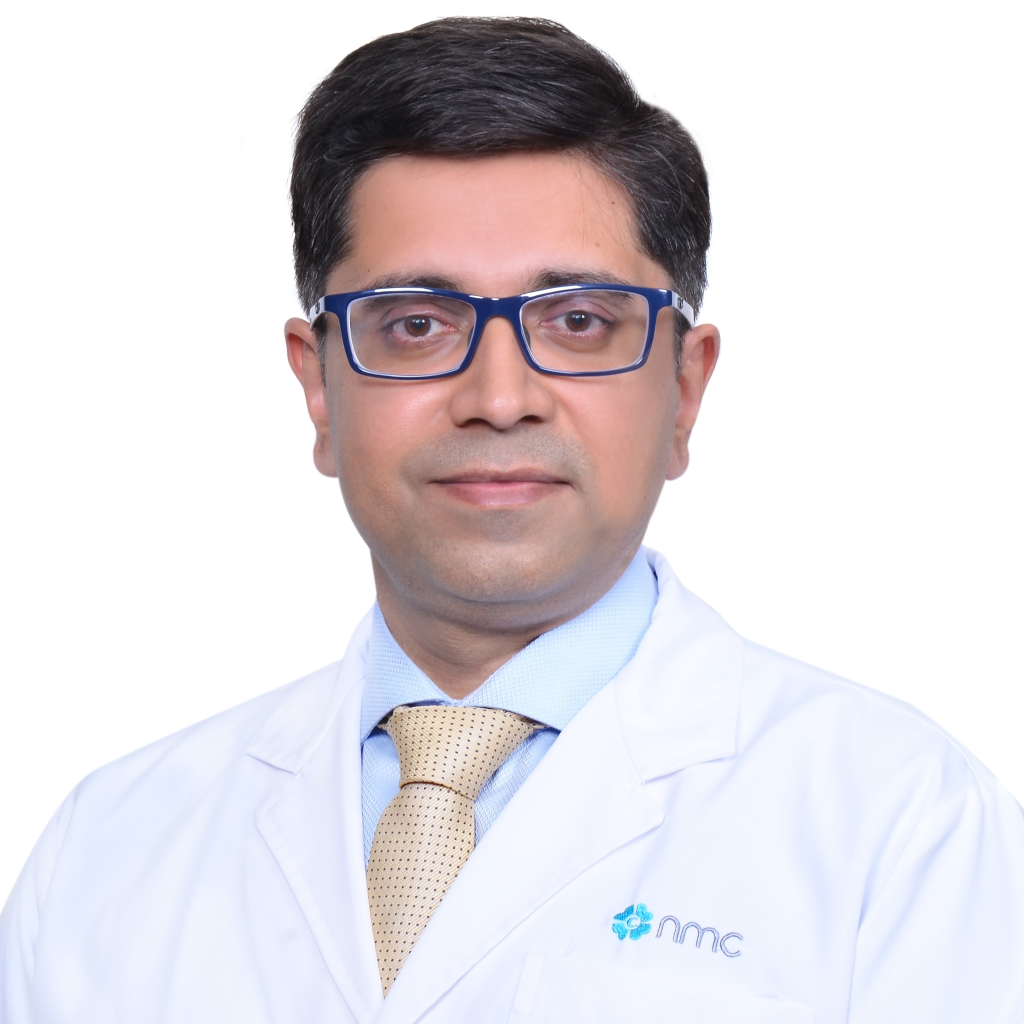Appendicitis
Treatment In MBZ City
Dr. Rajarshi Mitra
Expert Laparoscopic Surgeon With 20+ Years of Global Experience
Appendicitis Treatment Options Provided By Dr. Rajarshi Mitra
Medical Management In Mohamed Bin Zayed City
Laparoscopic Appendectomy
Percutaneous Drainage
Drain Placement
Open Appendectomy (Only if required)
Specialist For Appendix Removal Surgery In MBZ City
Years Of Global Experience
Dr. Rajarshi Mitra treated Appendicitis patients in multiple countries. His mission is to help you reclaim your daily comfort and well-being through effective treatment.
5 Star Patient Reviews
Dr. Rajarshi Mitra's patients are not just cured and recovered fast from Appendicitis but they also received detailed pre-surgery and post-surgery guidance for long-term relief.
Happy Patients Recovered
We're proud to share his wealth of experience in treating Appendicitis (medically and surgically), bringing relief and comfort back into the lives of patients.
Why Dr. Rajarshi Mitra?
- 20+ Years Of Surgical Experience
- 500+ 5-Star Reviews From Patients
- Multi-Country Training Expertise
- New-Age Surgical Techniques
- Appendicitis Treatment Specialist
Dr. Rajarshi Mitra offers innovative, advanced treatment options (minimally invasive and laparoscopic) for appendicitis patients in and around Mohamed Bin Zayed City.
With 20+ years of global experience and an outstanding track record of appendix removal surgery, Dr. Mitra uses cutting-age treatment and state-of-the-art laparoscopic techniques to ensure a painless, fast, and comfortable recovery.

What Is Appendicitis?
Appendicitis is a medical emergency that occurs when the appendix, a small, finger-like pouch attached to the large intestine, becomes inflamed and fills with pus.
The appendix is a vestigial organ, meaning it has lost its original function, but it can still cause problems.
Appendicitis typically starts with a sudden, severe pain in the lower right abdomen that gradually worsens over time. The pain may also radiate to other areas of the abdomen, back, or rectum.
Other symptoms include nausea, vomiting, loss of appetite, fever, and abdominal tenderness.
If left untreated, the inflamed appendix can rupture, leading to a life-threatening infection in the abdominal cavity. Appendicitis can affect anyone, but it's most common in people between the ages of 10 and 30.
The exact cause of appendicitis is unknown, but it's thought to be related to a blockage of the appendix, which can be caused by a variety of factors, including feces, foreign bodies, or inflammation.
Treatment for appendicitis usually involves an emergency surgical removal of the appendix, known as an appendectomy.
Prompt medical attention is essential to prevent complications and reduce the risk of mortality.
What Are The Causes of Appendicitis?
The exact cause of appendicitis is often unclear, but several factors can increase the risk of developing the condition. Common causes of appendicitis include:
Blockage of the appendix: Feces, foreign bodies, or inflammation can block the opening of the appendix, leading to infection and inflammation.
Infection: Bacterial infections, such as E. coli, can cause inflammation and infection of the appendix.
Obstruction: A kink or twist in the appendix can obstruct the flow of feces, leading to blockage and infection.
Genetics: Family history and genetic predisposition may play a role in the development of appendicitis.
Diet: A diet low in fiber and high in processed foods may increase the risk of appendicitis.
Inflammatory bowel disease: Conditions such as Crohn's disease and ulcerative colitis can increase the risk of developing appendicitis.
Abdominal trauma: Trauma to the abdomen, such as a blow or injury, can cause inflammation and infection of the appendix.
Tumors: Rarely, tumors can block the appendix and cause appendicitis.
Minimally Invasive
Dr. Rajarshi Mitra offers a range of treatments for appendicitis, including minimally invasive procedures like Laparoscopic Appendectomy, Percutaneous Drainage, Drain Placement, and Open Appendectomy (if required).
Appendix Removal Surgery
Dr. Rajarshi Mitra will personally assess your current condition and recommend the best surgery option specifically tailored to your condition to ensure the fastest recovery from acute and chronic appendicitis.
Minimal Pain Treatment
Dr. Rajarshi Mitra uses the latest techniques and anesthesia protocols to minimize discomfort during and after the appendix removal. His patients report feeling much better shortly after appendectomy.
Symptoms of Appendicitis
The symptoms of appendicitis can vary from person to person, but common signs and symptoms include sudden, severe pain in the lower right abdomen that worsens over time and pain that starts near the belly button and then moves to the lower right abdomen.
You can also experience nausea and vomiting, loss of appetite, fever (usually mild), abdominal tenderness and guarding (muscle tension), abdominal swelling, diarrhea or constipation, bloating and gas, feeling faint or lightheaded, and pain that worsens with movement, coughing, or deep breathing.
In some cases, the pain may radiate to other areas, such as the back, shoulder, or rectum. Some people may also experience a feeling of urgency to have a bowel movement or pass urine.
It's essential to seek immediate medical attention if you experience any of these symptoms, as appendicitis can quickly become a life-threatening condition if left untreated.
If the appendix ruptures, the symptoms may include severe abdominal pain, vomiting, and a high fever.
Prompt medical attention is crucial to prevent complications and reduce the risk of mortality.
Treatment of Appendicitis
Effective treatment of appendicitis typically involves prompt surgical intervention to remove the inflamed appendix. The goal of treatment is to prevent complications, such as perforation, peritonitis, and sepsis, which can be life-threatening.
The standard treatment for appendicitis is an appendectomy, which can be performed as an open surgery or laparoscopically.
Laparoscopic surgery is a minimally invasive procedure that involves making small incisions in the abdomen, allowing for faster recovery and less scarring.
In some cases, antibiotics may be administered to treat any underlying infections before surgery. In rare cases, appendicitis may resolve on its own with antibiotic treatment, but this approach is not recommended as it can lead to recurrence and increased risk of complications.
Early diagnosis and treatment are critical, as delays can lead to increased morbidity and mortality. Post-operative care involves managing pain, monitoring for complications, and providing antibiotics to prevent infection.
With prompt and effective treatment, most people with appendicitis can expect a full recovery.

Painless Treatment For Appendicitis In MBZ City
Located 30 minutes from Mohamed Bin Zayed City, Dr. Rajarshi Mitra utilizes his 20+ years of global experience in appendix removal surgery. His cutting-edge treatment options are:
Minimally invasive laparoscopic surgery for minimal pain (almost painless) and less scarring.
Advanced medical and surgical protocols for comprehensive care and superfast recovery from appendicitis.
State-of-the-art and customized treatment plans for specific condition and need of each appendicitis patient.
Latest technology and advanced equipment for surgery.
Frequently Asked Questions
Are You Ready For A
Appendicitis Free Life?
With a holistic and patient-centric approach, Dr. Rajarshi Mitra will guide you on the path to recovery, ensuring that your journey toward an appendicitis-free life is as healthy and comfortable as possible.


